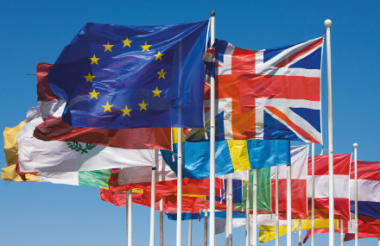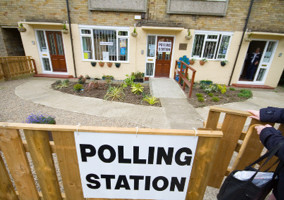The Big Society was a PR stunt and and its failure contributed to the leave result at last week's European Referendum, says Ben Darlington.
David Cameron’s reckless approach to Britain’s membership of the EU has sold us up the river in many ways, but as the dust settles and Thursday’s vote reveals the full extent of our divided, disenfranchised country, it is clear that his abject failure to deliver on the ‘Big Society’ is the origin of the rift.
When Cameron ran for office in 2010, the Big Society was the flagship policy of the Conservative manifesto. It was a vision of compassionate conservatism that blended social solidarity with the power of the free market to empower communities to improve civic life at the local level.
His intention was to shift power from central government to the local authorities, co-operatives, charities and social enterprises that understand the specific problems threatening their communities.
Big Society ideology was a 'PR stunt'
As a social enterprise and winner of a 2015 ‘Big Society Award’, our own experience of the initiative gives a snapshot of its empty promise at a national level. After a lengthy and uncommunicative application process we finally received a hastily photocopied certificate and a press release that misspelt our company name.
The award, like the Big Society ideology behind it, was a PR stunt. Nothing more.
But whilst Cameron extolled the power of the individual to replace the ineffective machine of Big Government, austerity was waging its own war on community services.
Gone are the day-centres for the elderly, the Sure Start nurseries, the youth-clubs and the libraries. Gone is legal aid. In their place we find an explosion of dependence on food banks, employability programmes and community centres operating on ever reducing resources.
Austerity left a void in deprived areas that Cameron’s pet project never had the muscle to fill. Charities, social enterprise and local authorities have been squeezed year-on-year since 2010 in the context of increased service use, while public sector contracts have been lavished on private sector companies like Serco and G4S.
The success of the Big Society was confined to leafy suburbs where highly educated middle-class communities had the professional, organisational and financial resources to rescue their floundering services. Great news for the Sodding Chipbury Post Office.
Not such good news for the communities and demographic groups who’ve seen standards of living drop year-on-year since 2010, and who watch their metropolitan, middle-class neighbours flourish in Austerity Britain, across a growing chasm of social inequality.
The fall out of the ‘leave vote’ now confirms that this hasn’t been great news for the country as a whole, either. The great roar of disenchantment with the political system last Thursday marks a level of unprecedented disconnection and anger in our society and we are quite clearly not ‘all in this together’.
Nothing better exemplifies the disconnection between London and the regions than the complete disbelief many Londoners – us among them – felt on Friday morning. There has been a failure to spread the wealth of the City and a share of the nascent economic recovery beyond the capital.
'The irony is we need the Big Society more than ever'
As we ponder how we can reconcile the camps of Leave and Remain, and overcome the vast reserves of mistrust, resentment, frustration and anger that mull between them, the irony is we need the Big Society more than ever.
The institutions that govern and manage our country, the big employers and the wealth-creators clearly face serious challenges. But even the most faceless of bureaucracies or banks are staffed by people. We need to devolve directly to the grass-roots: to the millions of encounters that Britons make with each other every day, where the healing process can make a start.
As Sir Stuart Etherington, chief executive of the National Council for Voluntary Organisations, said on Friday, whilst every negative encounter chips away at our reserves of trust, each positive one reinforces our faith in each other.
But we need to go beyond that and recognise that this is a time for listening and compassion. We cannot turn our back, despite our anger, on those who oppose our views. As companies, charities and individuals we need to embrace the others among us. We need to challenge our assumptions, our perspectives and our prejudices. We must pursue a cross-pollination of understanding, ideas and support that goes beyond the suburban constraints of Cameron’s vision for society and see the whole of Britain for what it is.
We are poor and we are rich; we own the problems and the solutions; there is anger at the system, but the responsibility to build a better, bigger society rests with us as individuals, working with others for the common good.
Ben Darlington is a director of Benefacto, a social enterprise that supports 40 charities serving the most deprived communities in London through corporate volunteering.
Related articles












